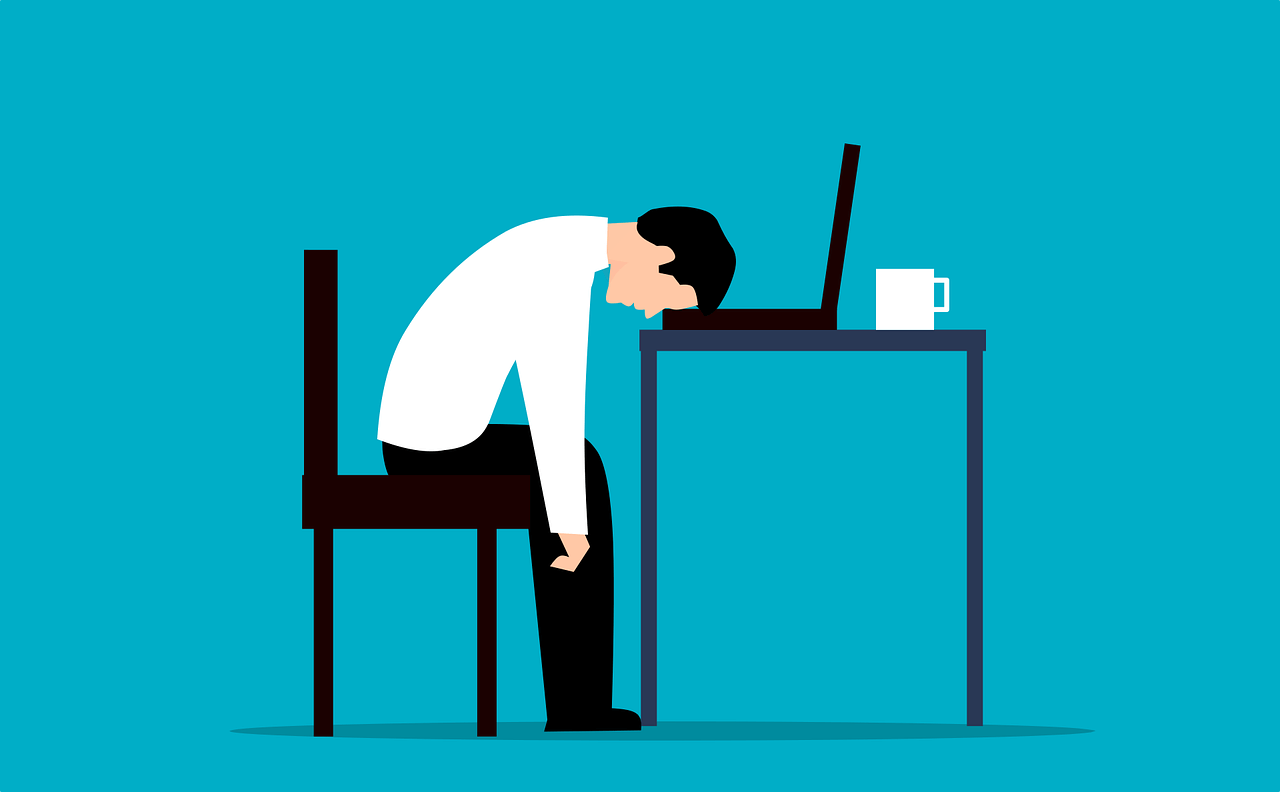Introduction
Brief explanation of stress:
Stress can be described as the body’s response to any demand or challenge. Derived from the Latin word “stringere,” which means to tighten, it’s a concept that has been part of human language and understanding for centuries. While stress is often perceived negatively, it’s important to note that it serves a fundamental survival function: the fight-or-flight response. This response readies the body to face or evade potential threats. However, problems arise when stress becomes chronic or overwhelming, leading to a range of physical and psychological issues.
Importance of learning how to cope with stress:
Learning to cope with stress is crucial for maintaining overall well-being. Stress, when left unchecked, can contribute to health problems such as heart disease, obesity, depression, and a variety of other concerns. Furthermore, chronic stress can affect cognitive functions, disrupt sleep, impact relationships, and decrease productivity. Therefore, learning to manage stress isn’t just beneficial for our health; it’s pivotal for leading a balanced and fulfilling life.
Overview of the article:
In this comprehensive article, we’ll delve into the nuances of stress. We will begin by understanding stress: its definition, causes, and effects on physical and mental health. We’ll then examine the coping mechanisms, distinguishing between unhealthy and healthy ways to deal with stress. We will further explore specific techniques for stress management, including physical activities, mindfulness techniques, and behavioral changes. Finally, we will consider when and how to seek professional help for stress management, discussing different therapies and medications available. By the end of this article, the reader will have a well-rounded understanding of stress management, equipped with practical tools for dealing with daily stressors and for when to seek professional aid.
Understanding Stress
Definition of stress:
Stress, in biological terms, refers to the body’s reaction to any change that requires an adjustment or response. This can be physical, mental, or emotional and can be caused by both positive and negative experiences. When we face stress, our body responds as if we are in danger, releasing hormones that speed up our heart, make us breathe faster, and give us a burst of energy—known as the ‘fight-or-flight’ response. This reaction is our body’s way of protecting us, yet when sustained over longer periods, this protective measure can turn detrimental, leading to chronic stress.
Causes of stress:
Stress can have myriad triggers, and these can be highly individual. What one person finds stressful, another might not. However, common causes of stress often include significant life changes (like getting married, moving house, or losing a job), chronic health problems, traumatic events, everyday problems such as difficulties at work or interpersonal conflicts, and even environmental factors such as noise or overcrowding. Stress can also stem from internal factors, such as an overly pessimistic outlook, unrealistic expectations, or chronic worry.
Effects of stress on physical and mental health:
When stress becomes chronic, it can lead to a plethora of physical and mental health issues. Physically, it can cause headaches, insomnia, muscle tension, and changes in appetite. Over time, chronic stress can contribute to more severe health problems, like heart disease, high blood pressure, diabetes, and other illnesses. Moreover, stress can lead to mental health problems like depression and anxiety, and it can worsen symptoms of existing mental health conditions. It can lead to cognitive issues such as difficulty concentrating and making decisions, and it can disrupt almost all of your body’s processes, leading to increased vulnerability to infections, slower healing, and overall diminished health.
Stress and its relation to other mental health conditions:
Stress is intimately linked with various mental health conditions. It is both a cause and a consequence of mental health problems. For instance, chronic stress can lead to the development of anxiety disorders and depression. On the other hand, people with existing mental health conditions may find their symptoms exacerbated during stressful periods. It’s also worth noting that those with mental health disorders might find everyday tasks and changes more stressful than others, thereby entering a vicious cycle of stress and mental health deterioration.
Coping Mechanisms: Unhealthy Vs. Healthy
Overview of coping mechanisms:
Coping mechanisms, also known as coping strategies, are the methods people employ to deal with stressful situations, difficulties, or uncomfortable emotions. These strategies can broadly be classified into two categories: healthy (adaptive) and unhealthy (maladaptive). It’s worth noting that coping mechanisms aren’t inherently ‘good’ or ‘bad’; their classification largely depends on how they’re used, the context, and their short and long-term effects on the individual’s wellbeing.
Discussion of unhealthy coping mechanisms and their consequences:
Unhealthy, or maladaptive, coping mechanisms are strategies that might help reduce stress temporarily but can have detrimental effects in the long term. These include strategies like avoidance, denial, procrastination, self-blame, and substance abuse. For instance, someone might use alcohol or drugs as a form of escapism from stressful situations, which, while providing short-term relief, can lead to addiction and more stress in the long run. Similarly, avoidance or denial might prevent immediate discomfort, but they usually prolong the problem since the underlying issue isn’t being addressed.
Discussion of healthy coping mechanisms:
Healthy, or adaptive, coping mechanisms, on the other hand, are strategies that help manage stress in a positive way without causing long-term harm. These can include a variety of techniques such as practicing mindfulness, engaging in physical activity, maintaining a balanced diet, ensuring adequate sleep, seeking social support, or using problem-solving techniques. For example, if an individual is feeling overwhelmed by a large task at work, breaking it down into smaller, more manageable tasks can help reduce the feelings of stress. Alternatively, someone might find that going for a run or meditating helps them clear their mind and manage their stress levels. Adopting such healthy coping strategies can lead to improved mental and physical health, better relationships, and overall higher quality of life.
Techniques for Coping with Stress
Physical activities (Exercise, Yoga, etc.):
Physical activity plays a crucial role in managing stress. When we exercise, our bodies release endorphins – chemicals that act as natural painkillers and mood elevators. Engaging in regular physical activity can lead to better sleep, increased relaxation, and improved self-confidence. This can range from high-intensity workouts like running or swimming to gentler forms of exercise like yoga or tai chi. Yoga, for instance, combines physical postures, breathing exercises, and meditation, making it a comprehensive stress management tool. Physical activities not only help distract the mind from stressful thoughts but also improve physical health, thereby reducing stress further.
Mindfulness techniques (Meditation, Breathing exercises, etc.):
Mindfulness involves being fully present in the moment and acknowledging one’s feelings without judgment. Techniques like meditation and controlled breathing exercises can help foster mindfulness, reducing the effects of stress. Regular meditation can alter the brain’s neural pathways, making you more resilient to stress. Breathing exercises, such as deep diaphragmatic breathing or “box breathing,” can help slow the heart rate and lower blood pressure, producing a sense of calm and relaxation that counters the effects of stress.
Behavioral changes (Improved diet, sleep hygiene, etc.):
Certain behavioral changes can significantly influence stress levels. For instance, a balanced diet can provide the necessary nutrients for the body to cope with stress. Consuming excessive caffeine or sugar might provide temporary energy but can lead to a crash later, increasing stress levels. Maintaining a regular sleep schedule is also crucial; lack of sleep can exacerbate stress and impact mental health. Reducing screen time before bed, ensuring a dark and quiet sleep environment, and establishing a regular sleep-wake cycle are all aspects of good sleep hygiene that can help manage stress.
Social support and counseling:
Human beings are inherently social creatures, and having a supportive network of friends and family can provide a buffer against stress. Sharing your concerns or feelings with others can help alleviate stress and provide a new perspective. Counseling or therapy, whether individually or in a group setting, can also be beneficial. Professional therapists can provide strategies and tools for managing stress, and talking through your experiences with a trained professional can be a great relief. Furthermore, online platforms and teletherapy have made access to professional mental health resources more accessible than ever.
Professional Help and Therapies for Stress Management
When to seek professional help:
While occasional stress is part of life, there are times when seeking professional help becomes crucial. Signs that stress is becoming overwhelming can include feeling constantly worried or anxious, having trouble sleeping or eating, experiencing physical symptoms that can’t be attributed to other illnesses, or feeling like stress is interfering with your work, relationships, or enjoyment of life. If stress leads to feelings of despair or thoughts of suicide, it’s essential to seek help immediately. Professional help can also be beneficial if you’ve tried stress management techniques without sufficient relief, or if you’re dealing with a stressful situation and don’t know how to cope.
Types of professional therapies available (CBT, DBT, EMDR, etc.):
There are various types of professional therapies available for stress management. Cognitive-Behavioral Therapy (CBT) helps individuals understand and change thought patterns leading to harmful behaviors or distressing feelings, thereby managing stress. Dialectical Behavior Therapy (DBT) teaches coping skills to combat destructive urges, encourages mindful awareness, and improves interpersonal communication—all of which can alleviate stress. Eye Movement Desensitization and Reprocessing (EMDR) is a unique therapy primarily used for post-traumatic stress disorder but can also be used for chronic stress management. EMDR helps the brain reprocess traumatic memories, reducing their long-term impact and helping the person develop healthier coping mechanisms.
Medication and stress management:
While therapy is often the first line of treatment, medication can also play a role in stress management, particularly when the stress is severe or leads to other mental health conditions like depression or anxiety. Antidepressants, anti-anxiety medications, or beta-blockers can be prescribed to manage these conditions and thereby alleviate the associated stress. It’s important to remember that while medication can help manage symptoms, it doesn’t cure the problem. Using medication in combination with therapy or other stress management techniques is often the most effective approach. Any medication should be taken under the supervision of a healthcare provider, who can monitor its effectiveness and manage any side effects.
Conclusion
Recap of coping strategies:
Throughout this article, we have explored various coping strategies for managing stress. This includes physical activities such as exercise or yoga, mindfulness techniques like meditation and controlled breathing, and behavioral changes, such as improving diet and sleep hygiene. We’ve also emphasized the importance of social support and the role of counseling or therapy in managing stress effectively.
Importance of continued stress management and seeking help when necessary:
Stress management isn’t a one-time task but an ongoing process. Continually engaging in healthy coping mechanisms, being mindful of your mental health, and adjusting your strategies as needed is key to maintaining a balanced lifestyle. It’s equally crucial to recognize when professional help is needed. In cases of chronic stress or when stress leads to other mental health concerns, reaching out to mental health professionals can provide the necessary support and resources.
What are the most effective ways to manage stress in daily life?
The most effective ways to manage stress vary from person to person, but generally include regular physical activity, practicing mindfulness techniques, maintaining a balanced diet, ensuring sufficient sleep, and seeking social support. These techniques aim to improve physical health, foster mental resilience, and provide outlets for stress.
When should one seek professional help for stress management?
Professional help should be sought when stress becomes chronic, starts interfering with your daily life, or leads to other mental health concerns like depression or anxiety. It’s also necessary to seek immediate help if stress leads to feelings of despair or suicidal thoughts.
How can stress be prevented or its impacts minimized?
Stress can be prevented or minimized by adopting healthy lifestyle habits, building strong social connections, and maintaining a positive outlook. Regular exercise, a balanced diet, sufficient sleep, and mindfulness practices can build resilience against stress. At the same time, it’s essential to remember that some stressors are unavoidable. In such cases, the focus should be on developing healthy coping mechanisms to manage stress effectively.










